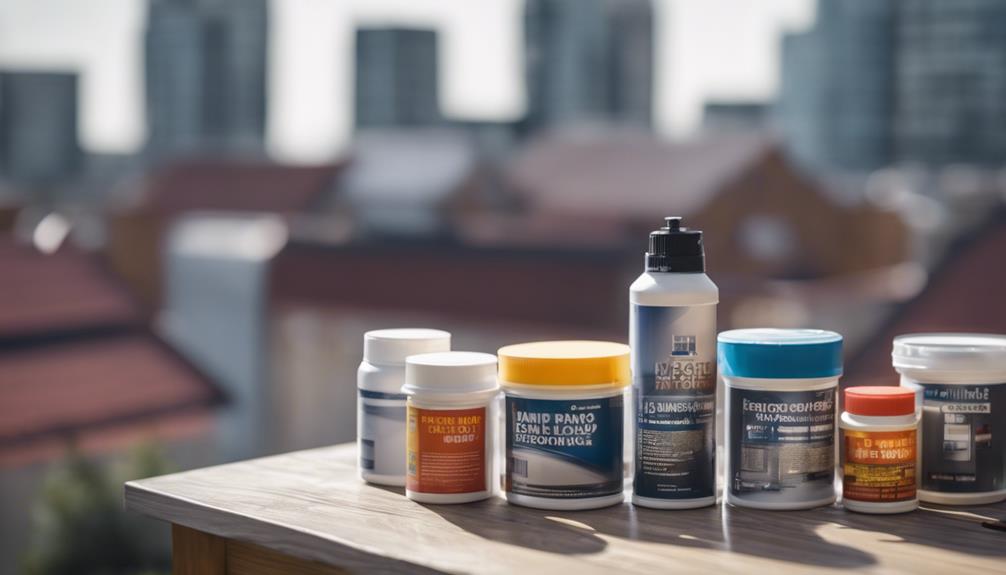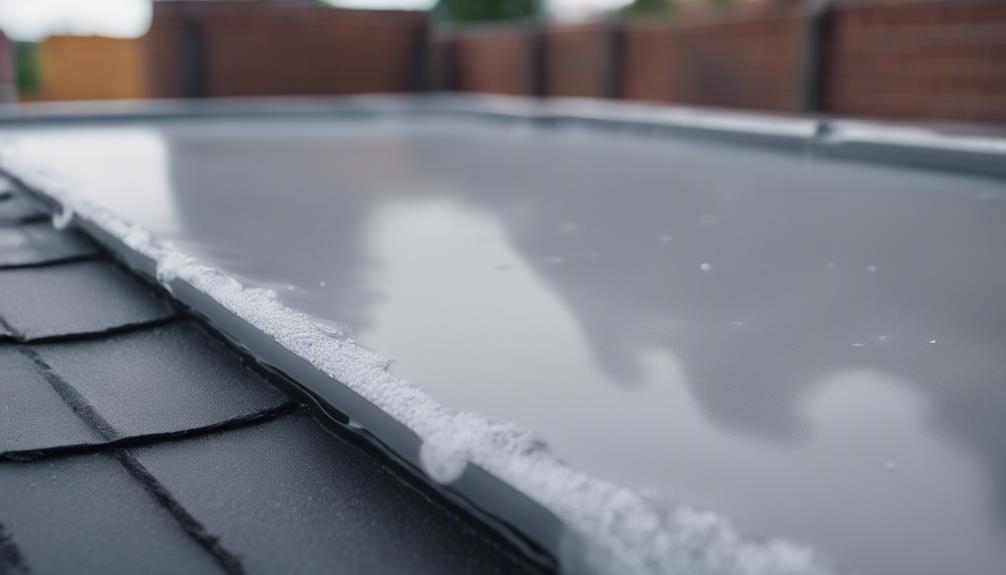Key Considerations When Selecting Liquid Roof Waterproofing Products
A comprehensive understanding of key factors is essential for choosing the right liquid waterproofing product - find out what makes the difference!
Choosing the wrong product can lead to costly leaks, premature deterioration, and repeated repairs that drain your budget.
When it comes to ensuring the durability and protection of a building’s roof, selecting the right liquid waterproofing product is paramount.
Various factors must be carefully weighed and analysed to make an informed choice. From the type of roof structure and prevailing climate conditions to the intended use of the building, each aspect plays a vital role in determining the most suitable solution.
Additionally, comparing different liquid products based on their performance characteristics and cost-effectiveness is essential for a successful waterproofing project.
At Astral Roofing, our Surrey specialists have tested dozens of liquid waterproofing systems across hundreds of commercial and residential projects.
We understand how critical factors like roof structure, local climate conditions, and building usage determine which solution will deliver maximum protection and longevity.
Continue reading to discover our expert selection framework that eliminates guesswork and ensures you get a waterproofing system that performs flawlessly for years, not months.
Roof Type Considerations
When selecting liquid roof waterproofing products, understanding the specific type of roof you have is important for determining the most suitable solution. Different roof types require different approaches to guarantee effective waterproofing. For instance, flat roofs are more prone to water pooling, necessitating a product with excellent ponding water resistance.
On the other hand, pitched roofs may benefit from a waterproofing product that can accommodate the movement associated with temperature changes.
Metal roofs, commonly found in commercial buildings, require a waterproofing product that can expand and contract with the metal panels to prevent cracking and leaking. Meanwhile, concrete roofs need a solution that can penetrate deeply into the porous surface to create a strong bond and ensure long-lasting protection.
Climate Factors to Assess
Evaluating climate factors is essential in determining the appropriate liquid roof waterproofing product for best performance and longevity. The climate of a region greatly impacts the durability and effectiveness of waterproofing solutions. Factors such as temperature fluctuations, UV exposure, precipitation levels, and humidity play a significant role in the selection process.
To highlight the importance of climate considerations, the table below outlines key climate factors and their influence on liquid roof waterproofing:
| Climate Factor | Impact on Waterproofing |
|---|---|
| Temperature Fluctuations | Can cause expansion and contraction, leading to cracks |
| UV Exposure | Breaks down materials over time, reducing effectiveness |
| Precipitation Levels | High levels can test waterproofing capabilities |
| Humidity | May lead to mold and mildew growth if not properly addressed |
Building Usage Evaluation

An essential aspect to ponder when selecting liquid roof waterproofing products is evaluating the intended usage of the building. The building’s purpose and function play a vital role in determining the most suitable waterproofing solution. For instance, a commercial building with high foot traffic or heavy equipment on the roof may require a more durable and impact-resistant waterproofing product compared to a residential building with minimal roof activity.
Moreover, the type of activities conducted on the roof, such as rooftop gatherings, HVAC installations, or recreational areas, will impact the wear and tear on the waterproofing system. Understanding the building’s usage helps in selecting a liquid roof waterproofing product that can withstand specific demands and conditions over its lifespan.
Additionally, the building’s occupancy load, frequency of roof maintenance, and accessibility for repairs should also be taken into account when evaluating building usage. By considering these factors, building owners and contractors can choose a liquid roof waterproofing product that aligns with the building’s intended purpose and ensures long-term performance and protection.
Comparison of Liquid Products
Selecting the most suitable liquid roof waterproofing product involves a thorough comparison of various options available in the market. When comparing liquid products for roof waterproofing, consider the following factors:
- Composition: Evaluate the materials used in the liquid roof waterproofing products to make sure they align with the specific requirements of your project.
- Application Method: Different products may require varied application methods such as spraying, rolling, or brushing. Choose a product with an application method that suits your project needs.
- Curing Time: The curing time of liquid waterproofing products can vary greatly. Consider the project timeline and opt for a product with a curing time that aligns with your schedule.
- Durability: Assess the durability and longevity of the waterproofing products to select one that offers the best protection against weather conditions and wear.
- Compatibility: Make sure that the chosen liquid roof waterproofing product is compatible with the existing roof materials to prevent any adverse reactions or damage.
Performance Vs. Cost Analysis

When contemplating liquid roof waterproofing products, the evaluation of performance versus cost is a crucial aspect in ensuring the best selection for your project. It is essential to strike a balance between the effectiveness of the product in protecting your roof and the overall cost to stay within budget constraints. Below is a table outlining the key factors to ponder when conducting a performance vs. cost analysis for liquid roof waterproofing products:
| Performance Factors | Cost Considerations |
|---|---|
| Durability | Initial Product Cost |
| Application Ease | Labor Costs |
| Weather Resistance | Maintenance Costs |
Frequently Asked Questions
Are There Any Specific Maintenance Requirements for Liquid Roof Waterproofing Products?
Maintenance requirements for liquid roof waterproofing products vary. Regular inspections, cleaning debris, and addressing any damage promptly are common practices. Some products may require reapplication or touch-ups every few years to maintain effectiveness and longevity.
How Long Do Liquid Roof Waterproofing Products Typically Last Before Needing to Be Reapplied?
Liquid roof waterproofing products typically last between 5 to 10 years before needing reapplication. Factors such as weather conditions, maintenance, and product quality can affect this duration. Regular inspections and timely reapplications help extend their lifespan.
Can Liquid Roof Waterproofing Products Be Applied Over Existing Roofing Materials?
Yes, liquid roof waterproofing products can often be applied over existing roofing materials, providing a seamless and cost-effective solution. However, proper surface preparation and compatibility checks are essential to guarantee the effectiveness and longevity of the waterproofing system.
Are There Any Environmental Considerations to Keep in Mind When Using Liquid Roof Waterproofing Products?
Environmental considerations are important when using liquid roof waterproofing products. Factors like VOC content, impact on air quality, and potential leaching into groundwater must be evaluated. Choose products with low VOCs and environmentally friendly formulations.
Are There Any Special Considerations for Applying Liquid Roof Waterproofing Products in Extreme Weather Conditions?
When applying liquid roof waterproofing products in extreme weather conditions, it is important to take into account temperature limitations, moisture levels, and wind speeds. These factors can impact product performance and application effectiveness, requiring adjustments for best results.
